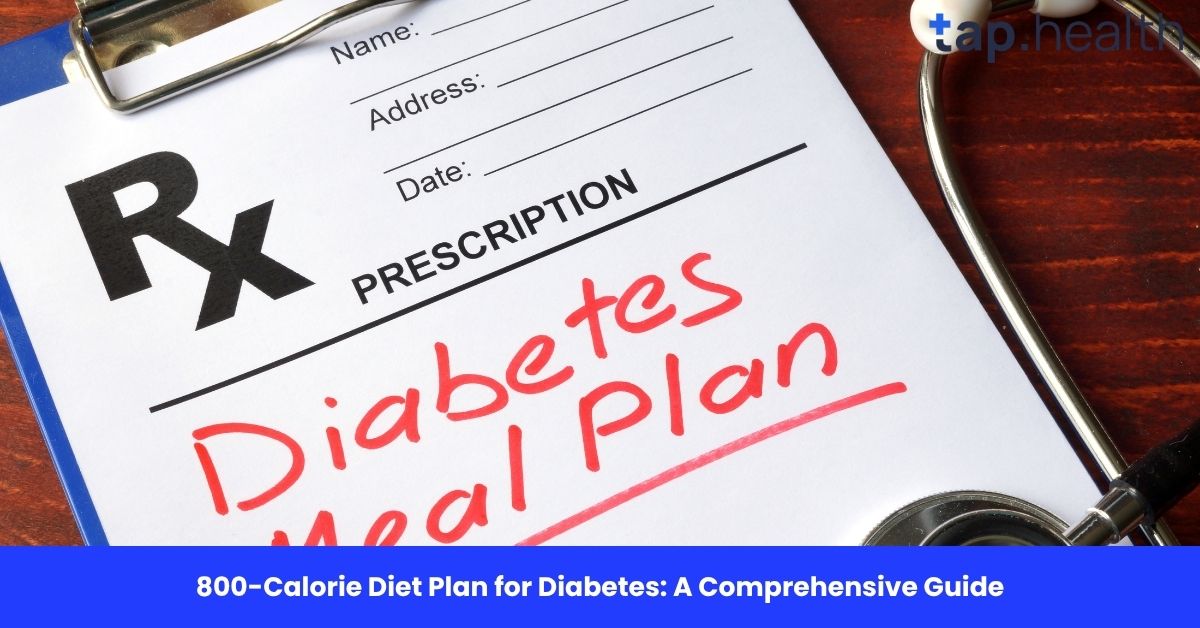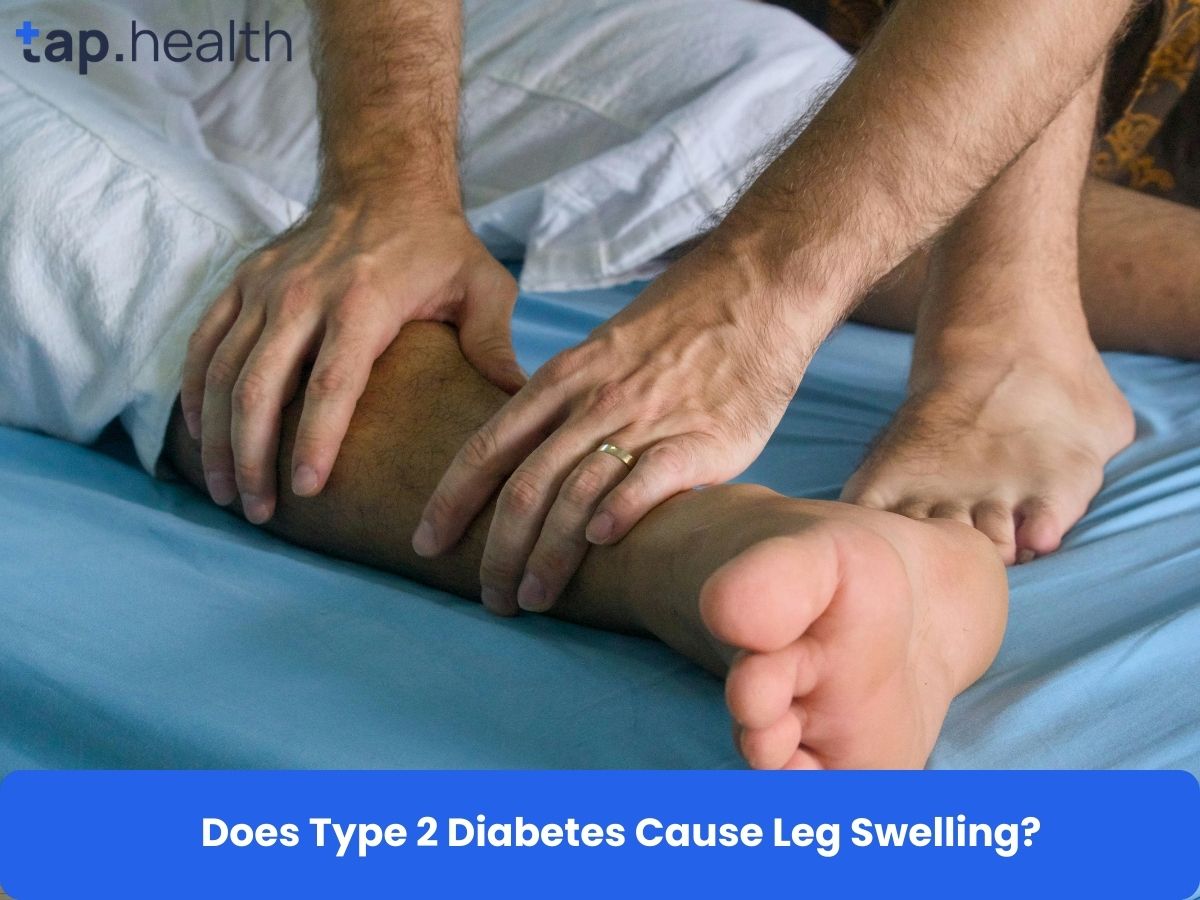Managing diabetes is all about balance. For those struggling with Type 2 diabetes, keeping blood sugar levels under control while maintaining a healthy weight is crucial. One potential approach that has gained attention is the 800-calorie diet plan for diabetes, which focuses on calorie restriction to improve overall health and potentially lead to remission.
This article will dive into the details of an 800-calorie diet for diabetes, including how it works, the benefits it offers, a sample meal plan, and essential considerations for anyone considering this approach. We will also cover how this diet plan compares to other options and provide answers to frequently asked questions.
What Is an 800-Calorie Diet?
An 800-calorie diet is a very low-calorie diet (VLCD), designed to restrict calorie intake to 800 calories per day. Unlike traditional diets that focus on gradually reducing calories, a VLCD drastically limits daily caloric intake to jump-start weight loss. This is typically done for a short period and under medical supervision, especially for individuals with health conditions like Type 2 diabetes.
How Does It Work?
The primary goal of an 800-calorie diet is to create a significant calorie deficit, which forces the body to burn fat for energy. This reduction in calories can help individuals lose weight quickly, which, in turn, can have a positive impact on blood sugar control. For those with Type 2 diabetes, weight loss and better blood sugar regulation can significantly improve overall health.
Why Consider an 800-Calorie Diet for Diabetes?
1. Weight Loss
Excess weight is one of the main contributors to insulin resistance in Type 2 diabetes. By significantly cutting calories, the 800-calorie diet can help patients lose weight quickly, which can help improve insulin sensitivity and reduce the reliance on medication.
2. Blood Sugar Control
Reducing calorie intake helps regulate blood sugar levels by decreasing the overall intake of carbohydrates, the main nutrient responsible for blood sugar spikes. By focusing on healthy foods, the 800-calorie diet can stabilise glucose levels, providing a more balanced way of managing diabetes.
3. Type 2 Diabetes Remission
Some studies suggest that a very low-calorie diet, including the 800-calorie approach, may help individuals with Type 2 diabetes achieve remission. By reducing the fat around the pancreas, the body may regain its ability to produce insulin more effectively, leading to normal or near-normal blood sugar levels.
What Are the Risks of an 800-Calorie Diet?
While an 800-calorie diet can provide benefits, it’s not suitable for everyone and can come with potential risks. Here’s what you need to know:
1. Nutrient Deficiency
Eating only 800 calories per day can limit the intake of essential nutrients. Without careful planning, individuals may not get enough vitamins, minerals, and fibre, which are necessary for overall health. It’s essential to follow the diet under medical supervision and ensure nutrient needs are met.
2. Loss of Muscle Mass
Prolonged calorie restriction may lead to the loss of lean muscle mass, especially if protein intake is inadequate. To prevent this, it’s crucial to include enough protein-rich foods, such as lean meats, fish, and legumes, in your meal plan.
3. Risk of Hypoglycemia
For individuals on insulin or other diabetes medications, the risk of hypoglycemia (low blood sugar) increases when calorie intake is drastically reduced. It’s important to consult a healthcare provider before beginning an 800-calorie diet to adjust medications accordingly.
What Foods Should Be Included in an 800-Calorie Diet for Diabetes?
An effective 800-calorie diet for diabetes focuses on nutrient-dense, low-calorie foods that help control blood sugar. Here are the key food groups to include:
1. Lean Proteins
Lean proteins like chicken, turkey, fish, tofu, and lentils are excellent choices. These foods help maintain muscle mass and keep you feeling full.
2. Non-Starchy Vegetables
Vegetables such as spinach, broccoli, cauliflower, and green beans are low in calories but packed with nutrients and fibre. They are perfect for filling up your plate without contributing to high calorie intake.
3. Healthy Fats
Incorporate healthy fats like olive oil, avocado, nuts, and seeds. These fats are crucial for overall health, helping maintain healthy cholesterol levels and supporting brain function.
4. Whole Grains
If your diet allows for a small amount of carbohydrates, opt for whole grains like quinoa, brown rice, or oats. These grains are high in fibre and can help manage blood sugar levels.
Sample 800-Calorie Meal Plan for Diabetes
Here’s a simple meal plan to give you an idea of what an 800-calorie diet for diabetes might look like. Remember, this plan should be personalised to your specific needs and lifestyle, so it’s important to consult with a healthcare professional before starting.
Breakfast (200-250 calories)
- Scrambled eggs with spinach and a dash of olive oil
- 1 small apple or a handful of berries
Lunch (250-300 calories)
- Grilled chicken breast with a side of mixed greens (spinach, cucumber, tomatoes)
- Dressing made with olive oil and lemon juice
- A small serving of quinoa or brown rice
Snack (100-150 calories)
- A handful of almonds or walnuts
- 1 small cucumber or carrot sticks
Dinner (250-300 calories)
- Grilled fish (salmon or mackerel) with steamed broccoli
- A side of non-starchy vegetables (e.g., green beans or zucchini)
- A drizzle of olive oil on the vegetables
This plan offers a balance of lean protein, healthy fats, and non-starchy vegetables, making it an effective way to manage both weight and blood sugar.
How Long Should You Follow an 800-Calorie Diet for Diabetes?
Typically, the 800-calorie diet is followed for 12 weeks as part of a weight loss programme, especially when targeting Type 2 diabetes remission. However, it’s important to approach this diet with caution and only for a limited time. Extended periods of calorie restriction can lead to muscle loss, nutrient deficiencies, and other health complications.
Once the initial phase is over, you can gradually increase your calorie intake while maintaining healthy eating habits to support long-term diabetes management.
Tips for Success on an 800-Calorie Diet
1. Consult with a Healthcare Provider
Before beginning any significant dietary changes, especially one as restrictive as the 800-calorie diet, consult with your doctor or dietitian to ensure it’s the right approach for you.
2. Stay Hydrated
Drink plenty of water throughout the day. Dehydration can lead to fatigue and headaches, so keeping hydrated is essential.
3. Get Support
Consider joining a weight loss or diabetes support group. Having a network of people who understand your challenges can keep you motivated and provide valuable advice.
4. Monitor Your Blood Sugar Regularly
Keep a close eye on your blood sugar levels, especially when starting a calorie-restricted diet. Your healthcare provider may adjust your medication depending on how your body responds to the diet.
Key Takeaways
An 800-calorie diet for diabetes can be an effective way to manage blood sugar levels, aid in weight loss, and potentially even lead to remission of Type 2 diabetes. However, this diet should be followed under professional guidance and for a limited time. A carefully planned 800-calorie diet focusing on lean proteins, healthy fats, and non-starchy vegetables can help maintain nutrient balance while improving overall health.
Frequently Asked Questions (FAQ) on 800-Calorie Diet Plan for Diabetes
What are the benefits of an 800-calorie diet for diabetes?
An 800-calorie diet helps with weight loss, improves blood sugar control, and may even lead to Type 2 diabetes remission by improving insulin sensitivity.
Is the 800-calorie diet safe for everyone with diabetes?
No, the 800-calorie diet is very restrictive and should only be followed under the supervision of a healthcare provider, particularly for individuals on insulin or other diabetes medications.
How much weight can I lose on an 800-calorie diet?
On an 800-calorie diet, individuals typically lose 1-2 kg per week, especially in the initial stages. The rate of weight loss may vary based on factors such as age, gender, activity level, and adherence to the diet. However, significant weight loss should always be monitored by a healthcare provider to ensure it is done safely.
Can I follow an 800-calorie diet without meal replacements?
Yes, you can follow an 800-calorie diet using whole foods. Meal replacements like shakes and soups are typically used in the initial phase, but regular meals can be incorporated once you move to the second phase of the diet.
What are the basic rules of the Fast 800?
The Fast 800 diet combines intermittent fasting with a Mediterranean-style eating plan. The main rules include:
- Consuming 800 calories a day for up to 12 weeks.
- Focusing on low-carb, high-protein, and healthy fat meals.
- Incorporating intermittent fasting, where you have eating windows and fasting periods.
- Gradually reintroducing more calories after the 12-week period, maintaining a balanced diet for long-term health.
What is the 12-week diabetes diet?
The 12-week diabetes diet typically involves a very low-calorie diet (VLCD) with a goal of reducing calorie intake to 800-1,200 calories a day. This approach is often part of weight loss programs aimed at improving insulin sensitivity and potentially achieving Type 2 diabetes remission. During the first 12 weeks, individuals may replace meals with soups or shakes, and then transition to solid foods in the later weeks, all while keeping the calorie intake controlled to support weight loss and blood sugar regulation.
How long should I follow the 800-calorie diet?
The diet is generally followed for up to 12 weeks. After that, a gradual increase in calories should occur while maintaining healthy eating habits.
Can I exercise on an 800-calorie diet?
Light exercise is generally safe, but intense physical activity may need to be adjusted as calorie intake is reduced. Always check with your healthcare provider before starting any exercise routine.



